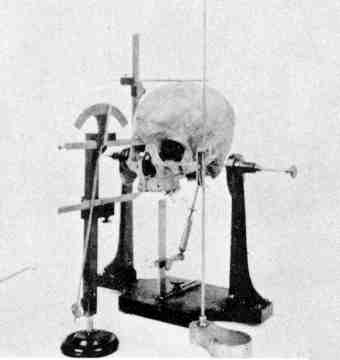How Eugenics Shaped Statistics
By Aubrey Clayton,
Nautilus
| 10. 28. 2020
Exposing the damned lies of three science pioneers.
Cicely D. Fawcett and Alice Lee, Public domain, via Wikimedia Commons
In early 2018, officials at University College London were shocked to learn that meetings organized by “race scientists” and neo-Nazis, called the London Conference on Intelligence, had been held at the college the previous four years.
The existence of the conference was surprising, but the choice of location was not. UCL was an epicenter of the early 20th-century eugenics movement—a precursor to Nazi “racial hygiene” programs—due to its ties to Francis Galton, the father of eugenics, and his intellectual descendants and fellow eugenicists Karl Pearson and Ronald Fisher. In response to protests over the conference, UCL announced this June that it had stripped Galton’s and Pearson’s names from its buildings and classrooms. After similar outcries about eugenics, the Committee of Presidents of Statistical Societies renamed its annual Fisher Lecture, and the Society for the Study of Evolution did the same for its Fisher Prize. In science, these are the equivalents of toppling a Confederate statue and hurling it into the sea.
Unlike tearing down monuments to white supremacy...
Related Articles
By Julia Métraux, Mother Jones | 02.10.2026
Why was Jeffrey Epstein obsessed with genes? In the latest tranche of Epstein records and emails made available by the Department of Justice, themes of genes, genetics, and IQ—alongside more explicit threads of white supremacy—keep cropping up, often adjacent to Epstein’s...
By Ava Kofman, The New Yorker | 02.09.2026
1. The Surrogates
In the delicate jargon of the fertility industry, a woman who carries a child for someone else is said to be going on a “journey.” Kayla Elliott began hers in February, 2024, not long after she posted...
By Dan Barry and Sonia A. Rao, The New York Times | 01.26.2026
Photo by Gage Skidmore from Peoria, AZ, United States
of America, CC BY-SA 2.0, via Wikimedia Commons
Late last month, a woman posted a photograph on social media of a purple hat she had knitted, while a black-and-white dog...
By Shobita Parthasarathya, Science | 01.22.2026
These are extraordinarily challenging times for university researchers across the United States. After decades of government largess based on the idea that a large and well-financed research ecosystem will produce social and economic progress, there have been huge cuts in...




